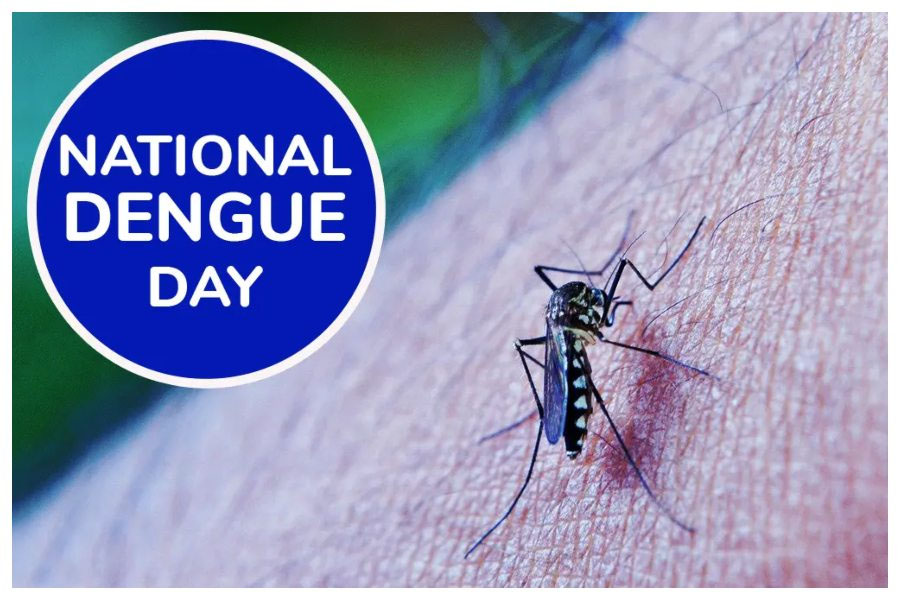Dengue is a viral disease transmitted by mosquitoes, primarily the Aedes species. It is a significant public health concern in many tropical and subtropical regions
National Dengue Day, observed on the 16th of May, raises awareness about the debilitating disease and promotes dengue prevention strategies.
Dengue is a viral disease transmitted by mosquitoes, primarily the Aedes species. It is a significant public health concern in many tropical and subtropical regions. Symptoms of dengue can range from mild to severe and may include high fever, severe headache, joint and muscle pain, rash, and fatigue. In severe cases, dengue can lead to dengue hemorrhagic fever or dengue shock syndrome, which can be life-threatening. Preventive measures, such as mosquito control and personal protection, are crucial in reducing the transmission of dengue.
Dr Atul Bhasin, Director, of Internal Medicine at BLK-Max Super Speciality Hospital, says, “It is essential to spread awareness about dengue, a disease transmitted by mosquitoes that can seriously harm our health, especially during the rainy season. The symptoms of dengue often look like those of the flu or other viral infections, which can lead to misdiagnosis. That’s why it’s crucial to recognize the signs of dengue.”
To prevent dengue, we need to get rid of places where mosquitoes can breed. “That means not allowing water to stay still in pots, coolers, or anywhere around our homes. We should also make sure to clean our coolers regularly and use mosquito nets when we sleep. It’s also important to cover water tanks and containers to keep mosquitoes away.If you notice that there are more mosquitoes around where you live, it’s a good idea to use insecticides to control their numbers,” adds Dr Bhasin. And if you keep having fevers during the summer, it’s really important to see a doctor and get tested for dengue.
“Personal protection measures, such as wearing long-sleeved clothing and using mosquito repellent, can also be effective in reducing the risk of dengue infection. It’s important to remember that preventing dengue requires ongoing efforts and cooperation from everyone, including community leaders, health professionals, and policymakers. Together, we can work towards a dengue-free future,” says Dr Rajesh Chawla, Senior consultant, pulmonology and critical care, Indraprastha Apollo Hospital.
By adopting these preventive measures, individuals can actively contribute to creating a dengue-free society and safeguard their well-being.
Dengue is a viral disease transmitted by mosquitoes, primarily the Aedes species. It is a significant public health concern in many tropical and subtropical regions. Symptoms of dengue can range from mild to severe and may include high fever, severe headache, joint and muscle pain, rash, and fatigue. In severe cases, dengue can lead to dengue hemorrhagic fever or dengue shock syndrome, which can be life-threatening. Preventive measures, such as mosquito control and personal protection, are crucial in reducing the transmission of dengue.
Dr Atul Bhasin, Director, of Internal Medicine at BLK-Max Super Speciality Hospital, says, “It is essential to spread awareness about dengue, a disease transmitted by mosquitoes that can seriously harm our health, especially during the rainy season. The symptoms of dengue often look like those of the flu or other viral infections, which can lead to misdiagnosis. That’s why it’s crucial to recognize the signs of dengue.”

